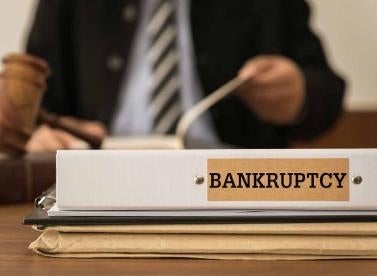When a debtor receives a bankruptcy discharge, section 524(a) of the U.S. Bankruptcy Code prohibits a creditor from seeking to collect a prepetition debt against the discharged debtor or its property. Importantly, the discharge does not extinguish the debt—it merely limits recourse against the discharged debtor. Section 524(e), however, provides that the discharge does not affect the liability of non-debtors for the discharged debt.
Corporate law generally provides that the owners of a corporation are not liable for the company’s debts. However, when there is a lack of separateness between a corporation and its owners, courts may “pierce the corporate veil” and find owners to be alter egos of the corporation and liable for the corporation’s debts. But what if the corporation obtained a discharge through a bankruptcy proceeding? Can that debt be enforced against the alter egos? In a recent opinion, the United States Bankruptcy Appellate Panel for the Ninth Circuit faced this question and held that the discharge of a corporation does not prevent creditors from seeking recovery of discharged debts against the debtor’s alter egos.
In In re: RS Air, LLC, the debtor, RS Air, LLC, was a Delaware limited liability company that filed for Chapter 11 bankruptcy in the United States Bankruptcy Court for the Northern District of California. RS Air further designated itself as a small business debtor under Subchapter V.
RS Air’s creditors filed a motion to dismiss the bankruptcy, objected to the Subchapter V designation, and sought standing to pursue veil piercing/alter ego claims under Delaware law against RS Air’s sole member and related parties. The bankruptcy court denied the motion to dismiss the bankruptcy and upheld RS Air’s Subchapter V designation. The bankruptcy court also denied the creditors’ standing motion on the grounds that the Delaware veil piercing/alter ego claims could not survive a Rule 12(b)(6) motion to dismiss.
The creditors appealed the bankruptcy court’s denial of its standing motion, and during the pendency of the appeal, RS Air obtained confirmation of its Subchapter V Plan. The creditors appealed confirmation of the Plan on the grounds that RS Air should not qualify as a Subchapter V debtor. The BAP ultimately affirmed the Subchapter V designation, but vacated the bankruptcy court’s decision on standing, ruling that the creditors’ veil piercing/alter ego claims could survive a Rule 12(b)(6) motion to dismiss, and (for reasons not important here) also ruled that the creditors would have the ability on their own to pursue the claims when the Plan went effective.
After the Plan went effective and before RS Air obtained a discharge under the terms of the Plan, the creditors filed a complaint against RS Air’s owner and related parties (all non-debtors) in the U.S. District Court for the Southern District of Ohio, alleging that they are liable for RS Air’s debt under alter ego/veil piercing causes of action. The complaint did not name RS Air as a party. Shortly after the complaint was filed, RS Air received a discharge from the bankruptcy court.
Following entry of the discharge, RS Air and the non-debtors filed in the bankruptcy court a contempt motion against the creditors, arguing that the complaint filed against the non-debtors violated the discharge entered in favor of RS Air. They alleged that the complaint impermissibly sought to recover a discharged debt because, among other things, the veil piercing/alter ego allegations meant that RS Air and the non-debtors were the same. The bankruptcy court denied the contempt motion and held that the complaint against the non-debtors did not violate the discharge. RS Air and the non-debtors appealed that decision to the BAP.
On June 2, 2023, the BAP issued a published decision. The BAP discussed the plain language of sections 524(a) and (e), which state that 1) the discharge only protects the debtor from personal liability and its property, and 2) the discharge does not protect any other person who is liable with the debtor. The BAP held that the discharge injunction does not extinguish the debt, but rather only precludes collection of that debt from the discharged debtor, here RS Air, or its property. Further, the BAP held that the alter ego allegations did not concern RS Air’s personal liability because the Ohio complaint did not seek any relief against RS Air. RS Air and the non-debtors argued that merely requiring RS Air to participate in discovery for that litigation violated the discharge injunction. The BAP emphasized that the discharge injunction only enjoins personal collection of a discharged debt and does not relieve a discharged debtor from all forms of imposition or inconvenience. The BAP affirmed the bankruptcy court’s decision finding that the creditors did not violate the discharge.




 i
i


